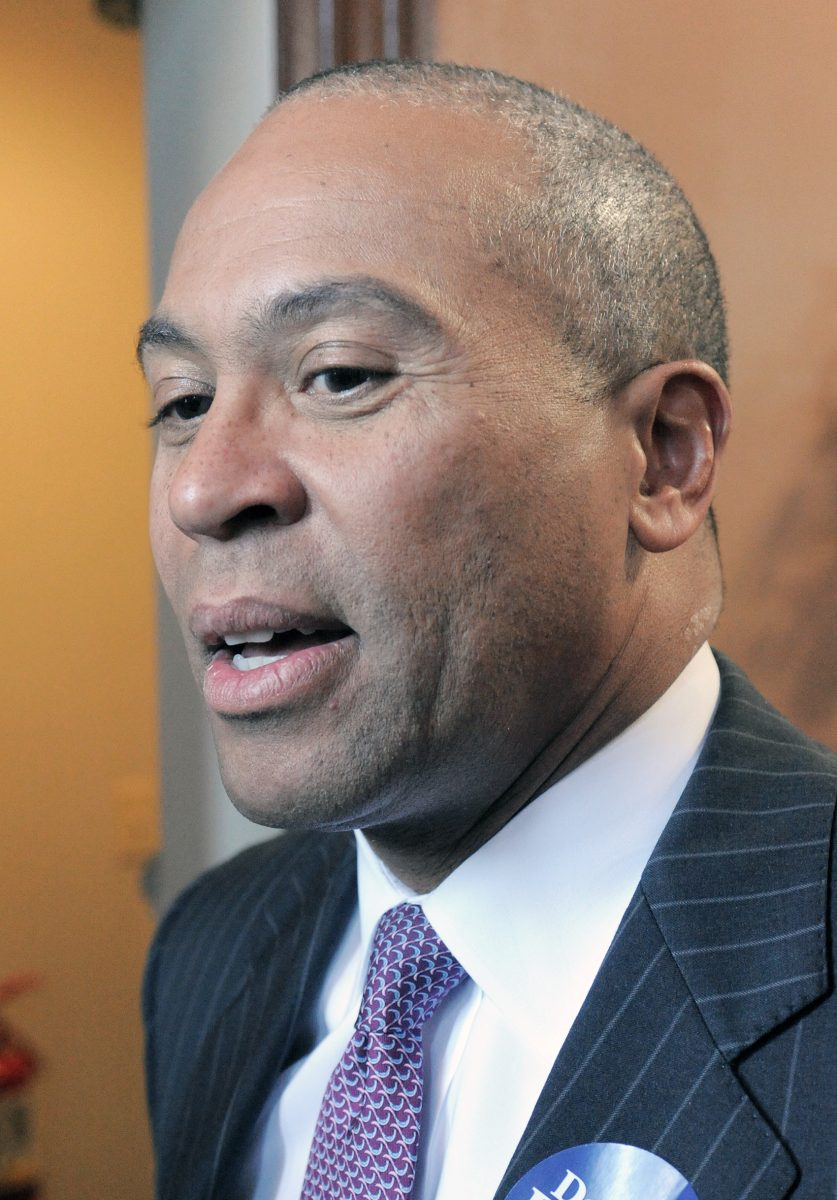BOSTON – Furthering his administration’s commitment to supporting the clean energy industry in Massachusetts, Governor Deval Patrick Wednesday announced $2.5 million in funding opportunities for clean energy companies across the Commonwealth and highlighted a new partnership agreement with the U.S. Department of Energy’s Advanced Research Project Agency – Energy (ARPA-E). The agreement will increase support for the research, development, demonstration and deployment of clean energy technologies in the Commonwealth.
“The challenges of climate change, energy sourcing and cost containment are ripe for the solutions our innovative culture can deliver,” said Patrick. “We have shown that we can build a clean energy future and simultaneously grow jobs and prosperity for the people of the Commonwealth.”
Patrick made these announcements at Forum 20/20, an event sponsored by the Massachusetts Clean Energy Center (MassCEC) and featuring leaders from the energy industry, policymakers, investors and academia brought together to discuss the future of the clean energy marketplace over the next decade.
During the conference, MassCEC signed the partnership agreement with ARPA-E to increase research and expand commercialization of clean energy technologies. Of the total funding opportunities announced, $900,000 will be available for AmplifyMass, a new matching grant program for early-stage clean technology research projects that receive federal funding through ARPA-E.
“This partnership is an exciting step forward between our organizations to foster the growth of advanced energy technologies across the United States,” said ARPA-E Acting Director Dr. Cheryl Martin. “In joining together, ARPA-E and MassCEC will further push the boundaries of innovation by collaborating in the research and development of groundbreaking energy technologies.”
Additionally, MassCEC’s InnovateMass program is making $1.4 million available for the support of demonstration projects featuring promising technologies and products that can have a significant impact on meeting the Commonwealth’s energy and environmental challenges.
“Meeting the Commonwealth’s ambitious climate and energy goals will require innovative solutions,” said Energy and Environmental Secretary Maeve Vallely Bartlett, who chairs MassCEC’s Board of Directors. “These programs allow innovative entrepreneurs to research and demonstrate the commercial viability of their promising technologies and help to foster the Massachusetts innovation ecosystem.”
The Governor also announced that the Catalyst program, funded by MassCEC and administered by the Massachusetts Technology Transfer Center (MTTC), is providing $200,000 in support of Massachusetts entrepreneurs and researchers to advance clean technology innovation.
“By working together with the federal ARPA-E program, we can help ensure the most promising technologies coming out of the Commonwealth’s startups and research institutions can continue along the path towards commercialization,” said MassCEC CEO Alicia Barton.
“The funding provided through MassCEC’s Catalyst program really helps entrepreneurs at very early stage companies and researchers at Massachusetts universities show the commercial viability of their technologies” said MTTC Director Abi Barrow. “We’re pleased to partner with MassCEC to distribute these important grant awards to move these very early projects forward.”
Since 2010, MassCEC has provided $2 million in matching funds to seven Massachusetts-based ARPA-E awardees, companies that have gone on to raise more than $200 million in additional funding and hire more than 280 employees.
The growth of the Massachusetts clean energy economy goes beyond Greater Boston, stretching from Pittsfield to Provincetown. Through targeted investments and programs that bring the environmental and economic benefits of clean energy to every corner of the Commonwealth, western Massachusetts has seen four consecutive years of strong clean energy job growth, while the southeastern region has been the fastest-growing region for two consecutive years. To further innovation across the state, the Patrick administration has already this year invested more than $300,000 at cleantech business incubators including North Shore InnoVentures in Beverly, Advanced Technology Manufacturing Center in Fall River, Institute for Environmental Sustainability in Worcester and Greentown Labs in Somerville. To prepare for the impacts of climate change, the Department of Energy Resources has awarded more than $7 million to support energy resiliency at critical facilities in municipalities like Lawrence, Springfield and Taunton. The Patrick administration’s focus on renewable energy has brought solar to 350 of Massachusetts’ cities and towns.
The Massachusetts clean energy sector is booming, having shown double-digit job growth for three consecutive years and a 47 percent growth rate since 2010. There are nearly 6,000 clean energy companies in Massachusetts that employ more than 88,000 workers, according to the 2014 Massachusetts Clean Energy Industry Report produced by BW Research.
The Patrick administration’s aggressive clean energy initiatives have made Massachusetts a leader in energy efficiency, renewable energy and emissions reductions. The American Council for an Energy Efficient Economy (ACEEE) recently named Massachusetts number one for energy efficiency for the fourth consecutive year. In 2007, Massachusetts had just over 3 megawatts each of solar and wind capacity installed. Today there are 664 megawatts of solar installed, with a goal of 1,600 megawatts by 2020. The Commonwealth has installed 106 megawatts of land-based wind and is poised to be home to the nation’s first offshore wind farm.


